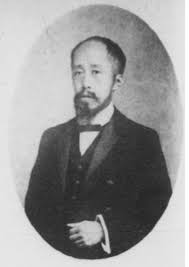Wang Ch'ung-hui 王寵惠 T. Liang-ch'ou 亮疇 Wang Ch'ung-hui (1881-15 March 1958), foreign minister in the provisional republican government in 1912. He subsequently held various ministerial posts and served briefly as acting premier at Peking in 1922. He later was president of the Judicial Yuan (1928-30; 1948-57), foreign minister (1937-40), and secretary general of the Supreme […]











